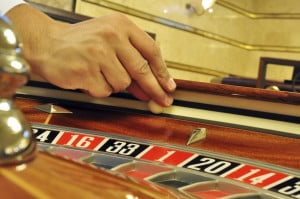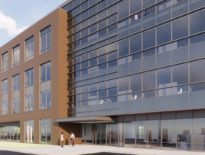MGM Springfield counted $22.29 million in revenue from its slot machines and tables games last month and the slots at Plainridge Park Casino generated $14.84 million in revenue in May, a cumulative total of $12.84 million of which will flow to the state.
Gamblers put more than $184 million into the slots at MGM Springfield, leaving $16.1 million or about 8.75 percent behind for the casino as revenue, according to reports released Monday by the state Gaming Commission. On top of that, MGM Springfield reported another $6.18 million in revenue from its table games last month.
In terms of total revenue, May was the third-best month since MGM Springfield opened in August.
“We continue to be pleased with our performance. We’re capturing market share and growing loyalty,” MGM Springfield President and COO Mike Mathis said. He added that the casino was “buoyed” in May by the start of its outdoor summer concert series and its “Food Truck Fridays” series.
Full-scale casinos in Massachusetts – MGM Springfield is the only one now, but Encore Boston Harbor opens June 23 and will report eight days’ worth of revenue by mid-July – are taxed at a rate of 25 percent of their gross gaming revenue. The monthly state tax haul from MGM in May was $5.57 million, the commission said.
At Plainridge Park Casino in Plainville, gamblers fed $185.47 million into slot machines and took back 92 percent of the outlay as winnings. The casino claimed 8 percent, or $14.84 million, as its monthly revenue.
The state is entitled to more than $5.93 million of Plainridge’s May revenue in the form of taxes intended for local aid and another $1.33 million for the Race Horse Development Fund. That works out to a total tax or assessment hit of about $7.27 million last month, according to the Gaming Commission.
Plainridge is taxed on 49 percent of its gross gaming revenue, with 82 percent of the levy going to local aid and 18 percent to a fund set up with the goal of supporting horse racing, an industry that is struggling in Massachusetts.
Massachusetts has collected a cumulative $371 million in taxes and assessments from the two gaming facilities since each opened, the Gaming Commission said.







